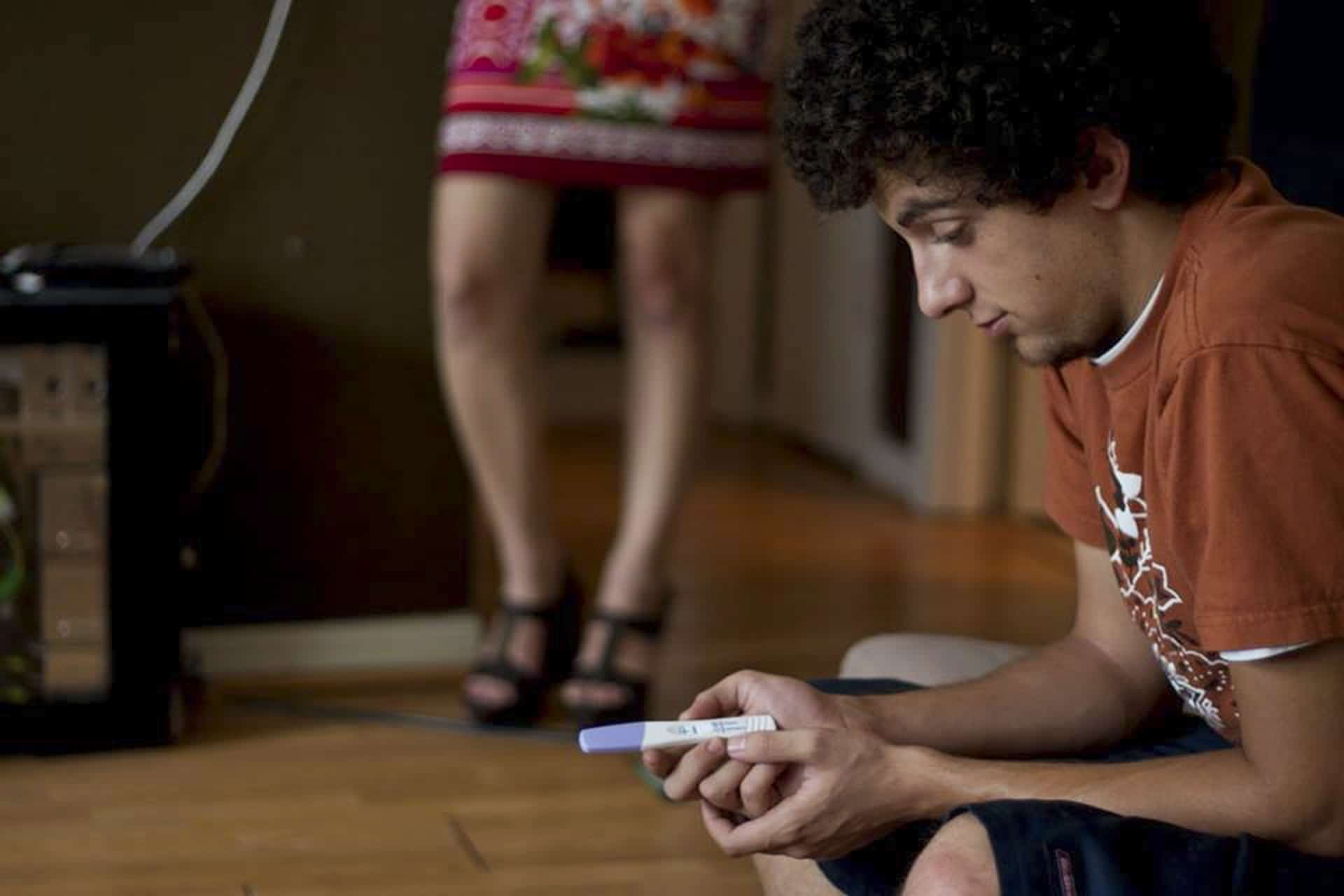Table of Contents
Can You Get Pregnant By Precum- Here’s what you need to know!
You may often wonder one thing- can you get pregnant by precum? This question often strikes our minds, and we end up overthinking. We have our calculations but do not know what exactly happens.
Let me tell you, the short answer to your question- Can you get pregnant by precum is YES!
Is Pregnancy Possible with precum?
Men release a fluid called pre-cum or pre-ejaculation before they climax. Pre-ejaculation comes right before men release semen. Semen has sperm that leads to pregnancy in the first place. Many people have several misconceptions regarding pregnancy; one misconception is that precum does not include sperms.
No sperm means no risk of getting pregnant, but that is not true. There are tons of misconceptions and misinformation about the topic, as everyone has their theory. But, the short answer is: YES! It is possible to get pregnant from pre-ejaculation. Here’s what you need to know on the topic- Can you get pregnant by precum?
Does pre-cum have sperms?

If you think pre-cum does not contain sperms, you are right! But it is still likely for sperms to leak into pre-cum. For those of you who do not know precum, it is a lubricant produced by penis glands. It is released right before ejaculation. There are chances of semen lingering in the urethra following ejaculation and mixing with pre-ejaculation while it is on the way out.
Also, a study from 2016 revealed that mobile sperms were present within pre-ejaculation of about 17% of the male participants involved. Another study from 2011 shows that 37% of mobile sperms were present in pre-ejaculation samples given by 27 men.
One simple trick can help release the sperms present in pre-cum. Peeing before you have sex might help flush out the semen leftover in pre-ejaculation, thus reducing the chances of getting pregnant.
When does pre-cum occur?
Pre-cum or pre-ejaculation is not something that anyone can control. The fluid discharged is an involuntary function of the body that happens directly before ejaculation. This is why the withdrawal method does not perform as well at stopping pregnancy because of different birth control methods, such as pills, surgery, or condoms.
Even if you can pull out just before climax, pre-ejaculation is still possible to penetrate inside your part your partner’s. The study shows that can direct to unintended pregnancy. One study from 2008 reveals that 18 percent of partners who used the withdrawal approach became pregnant in a year.
As per a 2013 National Health Statistics Report, approximately 60 percent of females in the United States mention using this birth control method. In general, the withdrawal option is about 73 percent useful at controlling pregnancy, as per the FeministWomen’ss Health Center.
Can you increase the effectiveness of the withdrawal method?

Essentially, the withdrawal option is not iron-clad. The suggestion experts try to offer couples is that- if anyone is primarily using the withdrawal method, you need to be satisfied as a couple with the idea of ultimately finishing sex (as precum does have sperm). If you are moving to enter the vagina without protection, you must withdraw or pull out long before the climax and be stimulated. Pulling out or withdrawing before the verge of an orgasm will not protect you.
That suggests you must put a condom on once the male organ is erect, ere skin-to-skin touch.
Is there a way to prevent or avoid Pre-ejaculate?
Unfortunately, there is no such way to block precum, and the quantity of pre-cum is decided by several factors. The amount of pre-cum fluid can differ based on the man’s arousal level, hydration levels, hormonal status, and medications. The primary method to avoid precum is using a barrier, for example, a condom.
Having said all the vital things, let’s see can you get pregnant by precum or not.
Can you get pregnant by pre-cum
The quick answer to your question is yes: You are likely to get pregnant from pre-cum even when not ovulating.
Although getting pregnant is most likely to occur when a female is ovulating, sperm can still actually live within your body for as prolonged as five days. This suggests that if sperm is within the reproductive tract before you ovulate, it may still be present and alive when you do ovulate.
Ovulation occurs typically around the middle of the menstrual process or cycle. This usually is almost 14 days before you begin your next period.
As you already know, sperm has a five-day life span within your body; if you start having sex frequently for five days before and on the day you ovulate, called “the fertile window,” — you are likely to have higher chances of getting pregnant.
People having irregular periods have an additionally tough time knowing when they are fertile and ovulating.
Pregnancy is most likely to occur when:
- if you are not using reliable and trustworthy methods for birth control.
- Around ovulation time.
- If you are not using a reliable method ideally, which likely happens a lot.
Can you get pregnant by precum-FAQ’s

1. Can you get pregnant by precum three days before ovulation?
The most fertile days are the three days up to ovulation and before the day you ovulate. To restrict the likelihood of getting pregnant, take cautiousness to avoid openness to precum at three days.
2. Can you get pregnant by precum while ovulating?
Sperm can stay for 3–5 days in the reproductive organs of a female, and the egg stays for 12–24 hours after you ovulate. Pregnancy will result from exposure to pre-ejaculation at the beginning of ovulation, but the likelihood of pregnancy decrease over time.
3. Can you get pregnant by precum during a period?
The chances of getting pregnant during the menstruation period are scarce. Still, conception can happen in the menstruation cycle if a person is not employing effective birth control and exposure to the released sperm, which might be in the precum.
4. Can you get pregnant by precum while using birth control?
The possibility of pregnancy after disclosure to precum is based on birth control and how you use it. You will find some methods for birth control and how to use them effectively later in this article.
5. Can you get pregnant by precum with a condom?
The chance of pregnancy depending on a male condom is as much as 18%, and this figure becomes 21% when relying on a female condom, which could be more challenging to use. This signifies a possibility of pregnancy from precum for couples who employ condoms, particularly if they begin using a condom after the sexual connection has started.
6. Can you get pregnant by precum with an IUD?
The likelihood of pregnancy within one year of IUD insertion is less than even 1%. Making the possibility of pregnancy from pre-ejaculation highly low. But, the efficacy of IUDs over time will change based on the type of IUD inserted.
7. Can you get pregnant by precum after vasectomy?
In one year of the surgical procedure, the rate of pregnancies is less than 1 in 100. But later in the weeks afterward, it is still possible to get pregnant. People must continue using birth control methods until a sperm study shows that it is secure to stop, generally within 16 weeks.
8. Can you get pregnant by precum after giving birth?
Pregnancy occurs in 2% of individuals who are just breastfeeding for nearly six months before they retain their first post-pregnancy menstruation cycle. But pregnancy can happen near the span of ovulation, and it can be challenging to know when ovulation occurs after childbirth as it occurs before the first period. So it is challenging to forecast the possibility of pregnancy at this period.
Emergency contraception options

The pull-out or withdrawal strategy is not a highly effective way to stop pregnancy. If you utilize it often, it might be helpful to hold emergency contraception (EC) available on your medicine sideboard.
Emergency contraception can prevent pregnancy up to five days following unprotected sex. That is because it slows or prevents ovulation from occurring in the first place.
This signifies that ovaries would not cast your mature egg to be fertilized. Using more dependable protection to stop pregnancy from occurring in advance makes more sense. There are two different types of Emergency Contraception available over-the-counter or via the doctor:
Hormonal EC pills
You should take hormonal emergency contraceptive pills up to five days following unprotected sex. They are most convincing when you take them in the first 72 hours themselves.
Hormonal Emergency Contacpetives pills are secure to take, but they come with several side effects, similar to birth control. That includes:
- sickness
- vomiting
- breast tenderness
- abdominal pain
- headache
- dizziness
- tiredness
You can buy Emergency Contracpetves pills at the local drugstore. They can cost somewhere from $20 to $60, based on purchasing a generic or name-brand product.
If you are insured, you can contact your doctor and ask for a prescription. EC pills are regarded as preventative care, so they are often free with insurance plans.
Emergency IUD contraception
The Copper-T devise is an intrauterine device (IUD) that can function as emergency contraception. As per Princeton University, the Copper-T IUD can decrease your risk of getting pregnant by as much as 99 percent. That makes it highly effective compared to hormonal EC pills.
The doctor can place the Copper-T IUD up to five days following unprotected sex to stop pregnancy. And as a part of long-term birth prevention, the Copper-T IUD can remain for as long as 10 to 12 years.
Although Copper-T IUD performs better than Emergency Contraception pills, the cost of their placement can be a barrier. If you are uninsured, it will cost you $500 to $1000 in the United States. Many insurance plans will cover copper-T for free or at a decreased cost.
When to take a home pregnancy test
Although the withdrawal procedure has been helpful for you at times, there is still a chance you might become pregnant from pre-ejaculation. If you suspect you might be pregnant, you can conduct an at-home pregnancy test to discover if you are pregnant.
You might want to take an at-home trial right away, but that can be excessively soon. Most healthcare experts suggest you wait until after the first day of the menstrual cycle to take a quick pregnancy test. For highly accurate results, though, you must wait until a week after you have missed the period to test.
Women who do not have frequent periods must wait to test until three weeks after unprotected sex.
When to see your doctor

You must confirm the results with a doctor. Although a positive pregnancy result is nearly always accurate, a negative test result is not usually as reliable. You might have tested too soon or are on medicines that have influenced the results.
The doctor might have you take your blood test, urine test, or both to find out if you’re pregnant or not. If you are pregnant, make sure to talk to your doctor about all the options.
The bottom line
Your possibility of getting pregnant from pre-cum might be slim, but it can still occur. Sperm may still be present inside the urethra and blend with pre-cum released right before ejaculation.
If you utilize the withdrawal method for birth control, keep in mind that an evaluated 14 to 24 percent of partners will get pregnant over a year when using only the withdrawal method, as per one 2009 article.
Pick a more dependable method if you wish to prevent pregnancy. Consider having emergency contraception handy to help. Visit the doctor if you have any worries or get a positive pregnancy test. The doctor can walk you through various options for family planning, future birth control, as well as abortion.

